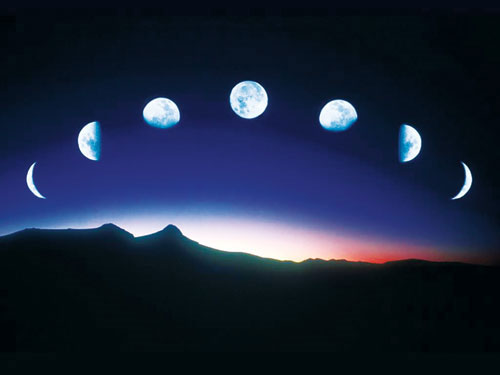If the earth has no moon ...
The longest eclipse of the past 11 years on the evening of June 15 has once again attracted the attention of astronomers and admired Hang. What will happen if the earth doesn't have this natural companion?
>>> Watching the Earth 'swallow' the Moon in a record-breaking Moonlight
>>> Video: Admire the total eclipse
That is the question that scientists always seek for long-term answers. Bill Hartmann, expert of Planetary Science Institute in Tuscon, Arizona (USA), in 1975 hypothesized the giant impact impact to explain the origin of the moon.
Accordingly, based on computer models and specimens taken from the moon, Mr. Hartmann suggested that a Mars-sized asteroid had collided with the earth from the beginning of the green planet to be born about 4, 5 billion years ago. The consequences of the collision were layers of rock and dust, which gradually condensed and accumulated into the moon. The theory also explains why the moon has no iron core like other members of the solar system, reported by Space.com .

The moon is not merely a muse of poetry - Photo : Nature
So which scenario will happen in the case of no collision a few billion years ago? Life on earth will have a completely different face, with shorter migration cycles and day-night cycles, if these phenomena exist. Tide is also a phenomenon caused by the moon, which helps stir the oceans and plays a role in mediating the chemicals that make up life from the mainland into the sea. The gravitational pull of the moon slows the Earth's rotation from its initial 6-hour-day cycle to the current 24-hour day. It also plays a role in stabilizing the tilt of the earth's axis, allowing us to have four seasons to date.
Therefore, life without the moon will be radically different from today. The day and night cycle will be more bustling, and the species must increase their migratory activity to avoid harsh winter. Without the moon, it is possible that people will never be interested in escaping from the planet in space travel, referring to the missions of seeking life out of space.
- The moon is separated from Earth?
- Photo: Manually watch the biggest moon in 20 years
- Does the Moon have its own moon? And you will be surprised with its name!
- At the time of dinosaurs, volcanoes on the Moon used to work?
- What happens if the Moon falls to Earth?
- 'Super moon' is about to appear
- The Moon will collide with the Earth after 65 billion years
- Decode the phenomenon of the moon
- The Earth's Moon is a giant platinum storehouse?
- New hypothesis about the origin of the Moon
- 50 interesting facts about the moon
- The violent evolution of the Moon
 Van Allen's belt and evidence that the Apollo 11 mission to the Moon was myth
Van Allen's belt and evidence that the Apollo 11 mission to the Moon was myth The levels of civilization in the universe (Kardashev scale)
The levels of civilization in the universe (Kardashev scale) Today Mars, the sun and the Earth are aligned
Today Mars, the sun and the Earth are aligned The Amazon owner announced a secret plan to build a space base for thousands of people
The Amazon owner announced a secret plan to build a space base for thousands of people